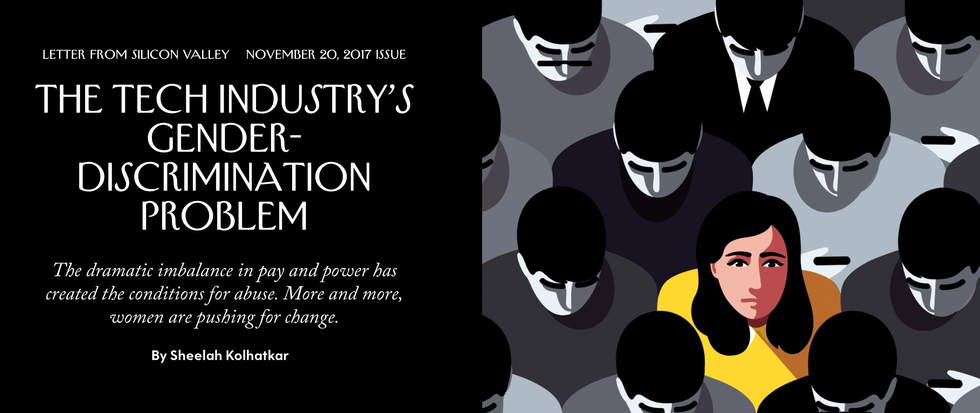Yesterday, Sheelah Kolhatkar, released her piece for this week's New Yorker that digs into why gender disparity is so prevalent in tech. It's a juicy read, and I'm a big Sheelah fan. I ate up her book Black Edge last winter that looked into how hedge funds ultimately get away with insider trading. I urge you to read Sheelah's entire story - it's long but worth it. In the meantime, I'm highlighting one of the more revelatory parts that details why it's so hard for women in tech to speak up about the discriminatory practices they witness.
"...in recent years in Silicon Valley there has been an enormous increase in the use of arbitration clauses in employee contracts—a legal strategy pioneered by Wall Street firms..."
The paragraph I lifted the above quote from follows and you can read Sheelah Kolhatkar's entire piece here.
"Meanwhile, the tech industry continues to erect barriers to legal action. A recent study by the law firm Carlton Fields Jorden Burt found that in recent years in Silicon Valley there has been an enormous increase in the use of arbitration clauses in employee contracts—a legal strategy pioneered by Wall Street firms, whereby disputes such as harassment must be settled through arbitration rather than litigated in federal court. The arbitration process is both shielded from public scrutiny and generally considered more favorable to employers. Tech companies have also embraced the use of employee confidentiality and nondisclosure agreements. Ostensibly, such agreements exist to protect company secrets, but when they are too broad they prevent employees from comparing salaries or talking publicly about their experiences at work. One former Google employee told me, "I wish we could have a twenty-four-hour moratorium on N.D.A.s, because that day would rock the tech industry."
You may also like View more articles
16 best talent acquisition tools for 2025
Apr 01, 2025
Workplace Discrimination 2025: A Guide
May 16, 2023
Open jobs See all jobs




